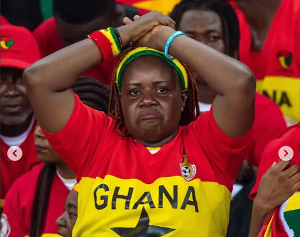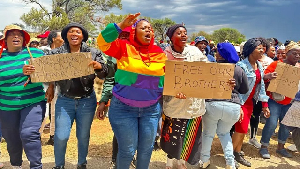Kumasi, July 30, GNA - In anticipation of the establishment of law schools outside Accra, the General Legal Council has appointed a committee to present a draft statute to regulate the present law school in Accra. Mr Justice G.K. Acquah, the Chief Justice, said the draft statute is not only intended to regulate the Ghana School of Law but also to serve as a guide for the establishment of any future Law schools in the country. Mr Justice Acquah said this when he addressed the closing session of the four-week training workshop for police prosecutors in Kumasi on Saturday.
It was organised by the Attorney General's Department in collaboration with the Ghana School of Law, the Kwame Nkrumah University of Science and Technology (KNUST) Faculty of Law and the Police Administration with support from the British High Commission. The 100 prosecutors who attended the workshop were drawn from the Ashanti and Brong-Ahafo regions and were taught police science, international law, human rights and gender issues and fundamentals in criminal law
Mr Justice Acquah gave the assurance that the judiciary and the General Legal Council are poised to ensure that law schools are established outside Accra since that would help ease the burden on the only one in the country. "The move for a statute has also become necessary because as things stand now, there is no clear-cut demarcation between the Law School and the General Legal Council". "But by the statute, the General Legal Council is responsible for regulating legal education in Ghana, whereas the Law School is concerned with the education of candidates for the Bar examinations", he said.
Mr Justice Acquah appealed to the Police Command to feature high the training of prosecutors on their programmes to cope up with the numerous cases that may come about as a result of setting up of more courts especially at the lower levels. Deputy Commissioner of Police (DCP) George Asiamah, the Director of Legal and Human Resource of the Police Service, expressed regret that the inadequacies of some police prosecutors had often times caused a lot of pain to victims who were not able to secure justice because of the weakness in the case of the prosecution. He stressed the need for police prosecutors not to rely solely on formal programmes but also to crave for information on their own that would enable them cope up with the challenges of prosecution. Professor Kwesi Andam, the Vice-Chancellor of the KNUST, gave the assurance that the Faculty of Law would not just confine its teachings to only the campus but would extend such education to benefit institutions like the Police Service.
Regional News of Saturday, 30 July 2005
Source: GNA
















